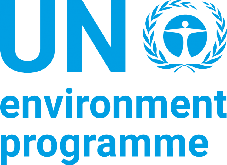African nations have committed to cut down on open burning across the continent - a move that experts say will help transform the prosperity and well-being of Africa and its people.
“In the African context, where we see a lack of waste management infrastructure, intentional and unintentional dumpsite burning is a major cause of environmental damage,” says Frank Turyatunga, Director and Regional Representative of the United Nations Environment Programme (UNEP) Africa Office.
“There are 1.2 million premature deaths every year in Africa from exposure to air pollution, and the waste sector is a significant contributor to this, with 29 per cent of fine particulate matter coming from waste burning,” he added.
Ministers from 54 countries committed to eliminating open dumping and burning of waste at the African Ministerial Conference on the Environment (AMCEN), held in Dakar, Senegal, last week, following the International Day of Clean Air for blue skies, held annually on 7 September, to raise awareness of the risks of air pollution.
UNEP research shows that it is not just human health that is damaged by poor waste management, decomposing organic waste contributes 20 per cent of global methane, while open waste burning accounts for 11 per cent of black carbon. Both methane and black carbon are key drivers of climate change.
To fulfil the commitment of the Paris Agreement and keep human-induced global warming below 1.5°C compared to pre-industrial levels, 30 gigatonnes of greenhouse gas emissions must be cut annually by 2030.
UNEP has developed a six-sector solution to provide a roadmap for getting there. Agriculture, food and waste are one of the sectors and collectively can provide 6.7 gigatonnes of emissions reduction a year.
In 2016, 180 million tonnes of waste, nine per cent of the global total, was generated in Africa, but only about 11 per cent was properly disposed of. In 2015, 19 of the world’s biggest dumpsites were located in sub-Saharan Africa, with poor waste disposal often leading to open burning.
Research shows that while agricultural waste burning, household burning, and forest fires significantly contribute to pollution, open waste burning releases the most toxic fumes.
“Burning not only pollutes the environment but brings with it a whole host of health concerns,” said Monica MacDevette, Chief, Chemicals and Health Branch, Economy Division, UNEP. “The old adage that a healthy planet is needed for a healthy population could not be more true.”
Egypt will host the UN Climate Change Conference (COP27) in November this year, where African nations are set to focus on adaptation, finance and a just transition.
Every year, on 7 September, the world celebrates the International Day of Clean Air for blue skies . The day aims to raise awareness and facilitate actions to improve air quality. It is a global call to find new ways of doing things, to reduce the amount of air pollution we cause, and ensure that everyone, everywhere, can enjoy their right to breathe clean air. The theme of the third annual International Day of Clean Air for blue skies, facilitated by UNEP, is “The Air We Share.”
